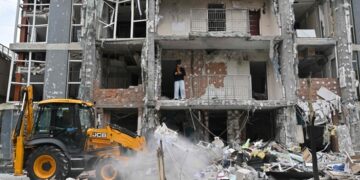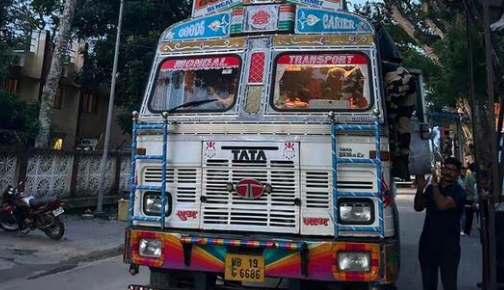The Indo-Bangladesh border has become a site of mounting frustration and hardship as hundreds of Indian truckers find themselves stranded with limited resources. These truckers, tasked with transporting essential goods across the border, have been stuck for days due to prolonged delays in customs clearance and border protocols.
Living conditions for these truckers have deteriorated rapidly. With no access to adequate food supplies, many have resorted to subsisting on puffed rice, a staple that can be consumed without cooking. “We have no choice. It’s been days, and we are surviving on puffed rice and whatever little we have left,” says Rajesh Kumar, a trucker from Uttar Pradesh.
The delay has not only affected the truckers but also the supply chain of essential goods between India and Bangladesh. Perishable items are at risk of spoiling, and industries dependent on these supplies are beginning to feel the strain.
Truckers have voiced their grievances, citing the lack of basic amenities such as clean water, sanitation, and shelter. Many have been forced to sleep in their vehicles or under makeshift tents, braving the elements and the constant threat of illness. “It’s not just about food. We don’t have proper toilets or clean water. It’s inhumane,” adds Kumar.
Local authorities have acknowledged the issue but have struggled to provide a concrete solution. Efforts to expedite the customs process and improve coordination between border officials have been slow, exacerbating the truckers’ plight.
This standoff has highlighted the broader issues of infrastructure and logistics management at the border. While the governments of India and Bangladesh have initiated talks to address these problems, immediate relief for the truckers remains uncertain.
In the meantime, the truckers continue to wait, hoping for a swift resolution that will allow them to deliver their cargo and return home. Their situation serves as a stark reminder of the human cost of bureaucratic delays and the urgent need for better border management.








 India
India












